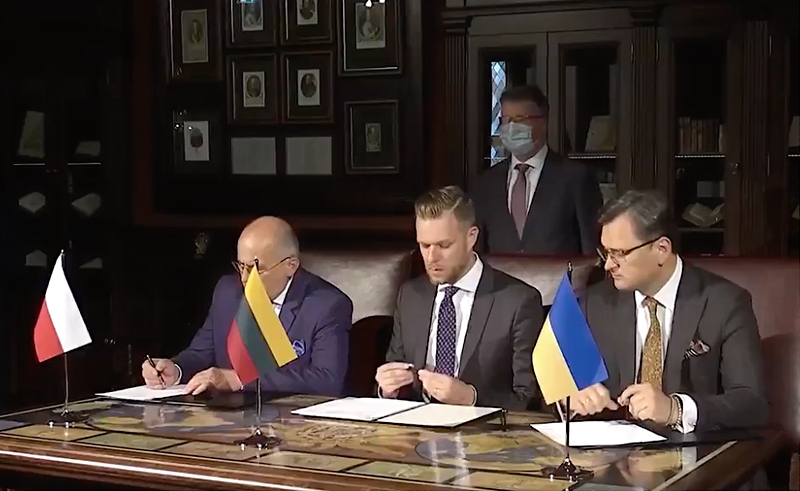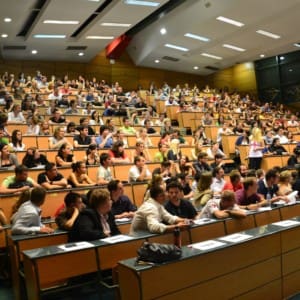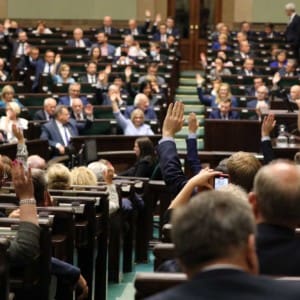Exactly one year ago, the Lublin Triangle was formed. Russians fear that this initiative might lead to the recreation of an entity similar to the old Polish-Lithuanian Commonwealth that would stand as a competitor to Moscow. Hopefully those fears come true. And, hopefully, this new Commonwealth will not make the same mistakes as its predecessor.
The undeniable thesis of Eastern European relations is that Ukraine is the key to power over the entire region.
Alexander Pushkin aptly wrote in his anti-Polish ode “To the Slanderers of Russia” about a centuries-long “home conflict” between the “big-headed Pole” and the “loyal Russian”, in which the scales of victory tip from one side to the other. The Khmelnytsky Uprising and the Cossacks switching sides to Moscow in the middle of the 17th century was the beginning of the end for Poland. For Russia, it was the start of becoming a true world power.
It is therefore unsurprising that Kremlin propaganda is trying to present the Lublin Triangle as a tool of Polish colonizers who are trying to use their Eastern neighbors to strike against Russia. Any display of Warsaw’s activity in relations with Ukraine, Belarus, and Lithuania is seen by Russia as an example of a return to the old Polish-Lithuanian Commonwealth’s imperial policies.
Russian policy should be viewed as a warning. When it comes to cultural propaganda, it will be hard for Poland to beat Russia near the Dnieper River. Even many honest Ukrainian patriots, who would prefer to be part of the West than part of the “Russian World”, speak Russian. Moreover, the Orthodox Church, although emancipated from the Moscow Patriarchy’s influence, naturally united all Eastern Slavic nations under itself. This is why the imperialistic Russian idea of a “triune nation”, most fully expressed in Vladimir Putin’s recent article “On the Historical Unity of Russians and Ukrainians”, may find fertile soil in Ukraine. Yet it may also cause opposition.
The last thing that Kiev needs right now is to hear a similar protective statement from Warsaw. Ukraine, which does not want to surrender to the more culturally similar Russia, will most definitely not surrender to the culturally distant Poland. Therefore, if Warsaw truly wants to be a leader in the region that is the former Eastern Marches, it must remind itself of the idea of a Commonwealth of not two, but of three nations. Warsaw must appreciate Ukraine as an essential and independent partner.
Of course, I am translating the construct of the Commonwealth into the language of today’s reality. The issue does not concern building a single state, but a strong and united regional alliance. It is quite unlikely, but always possible, that Belarus’s symbolic participation in this alliance will become a reality.
We should build the Commonwealth of Three Nations. Our common heritage is our libertarian and culturally and nationally diverse character, in contrast with the totalitarian and aggressive character of the “Russian World”.
Let us become an alternative to the “Russian World”, not its Western copy. The “Polish World” should attract through soft force, not hard. Instead of a “Great Poland”, let there be a Great Commonwealth.
Title image: The foreign ministers of Poland, Lithuania, and Ukraine: Zbigniew Rau, Gabrielus Landsbergis, and Dmytro Kuleba signing the “Declaration of Joint European Heritage and Common Values and a Road Map”, setting out the most important directions for the development of the Triangle into the future, Vilnius, July, 2021. (source: Polish Ministry of Foreign Affairs)






